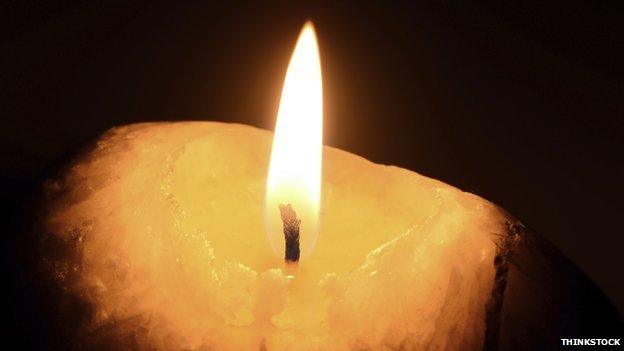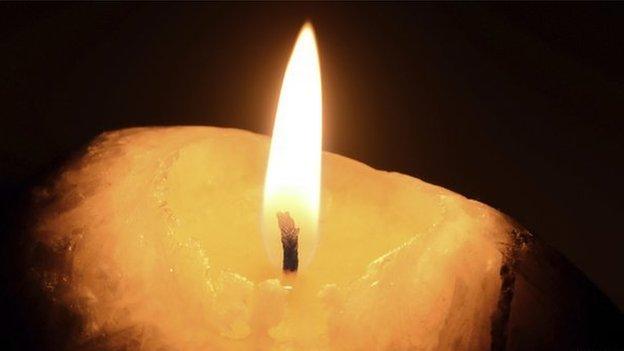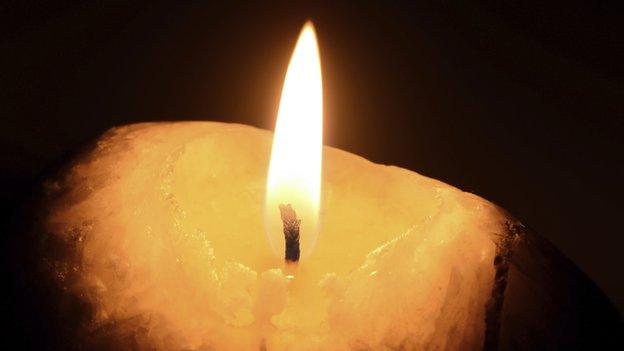Parents mount High Court challenge to RS GCSE
- Published

The claimants say religion does not have a monopoly on truth and morality
Three families are due in court on Tuesday to challenge the decision to exclude non-religious beliefs from the new religious studies GCSE syllabus.
From next year, the new GCSE will require, external pupils in England to study two religions but not humanism.
The parents fear excluding humanism may lead children to believe religion "has a monopoly on truth and on morality".
In February, former Archbishop of Canterbury the Right Reverend Lord Williams urged a government rethink.
He was among 28 religious leaders to sign a letter urging the government to allow students "the option of systematic study of humanism in GCSE".
'Lack of parity'
The three claimants asking for judicial review of the government's decision are all parents of children due to take GCSEs in the next few years.
"I completely recognise the importance of children learning about the different religions, especially in our increasingly diverse society," said Kate Bielby, from Somerset, whose daughter Daisy is 12.
"What I object to is the lack of parity between religious beliefs and non-religious worldviews in the school curriculum, which in the eyes of children may well lead to the belief that religion, in whatever form, has a monopoly on truth and on morality.
"This is not accurate, it reflects neither the views of the population nor the traditions of the country, and we shouldn't be encouraging our children to believe it."
The one-day High Court challenge is backed by the British Humanist Association (BHA).
Chief executive Andrew Copson said the new subject content amounted to a breach of the government's obligations to ensure a broad and balanced religious studies syllabus.
"The law is clear that when teaching about religions and beliefs, schools should follow a broad and balanced syllabus which includes both religious and non-religious worldviews like humanism on an equal footing," he said.
"The religious studies GCSE is therefore incompatible with the rights of non-religious parents and the entitlement of young people to an education that does not indoctrinate them, even by omission.
"It amounts to a breach of the government's obligations and that is what we are seeking the court to affirm, in line with overwhelming public and professional opinion."
Faiths included
The proposed course will require pupils to study two faiths and aims to develop a stronger understanding of the central role of religion in British culture.
The faiths included are:
Buddhism
Christianity
Catholic Christianity
Islam
Hinduism
Judaism
Sikhism
The Department for Education launched the plans a year ago, saying it had worked closely with experts from all the major faith groups to develop the "more academically rigorous qualification", which it maintains will allow students to choose options that can include humanism and other religious beliefs.
A ruling on the challenge is expected within the next few months.
- Published5 February 2015

- Published7 November 2014
